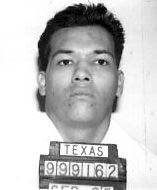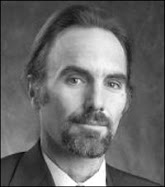 Obama Redefining 'Poverty'
Obama Redefining 'Poverty'By David Paulin
Originally published at The American Thinker
What does it mean to be poor in America today? For typical "poor" households -- as defined by the government -- it means cable television, two color television sets, and two or more cars.
As for housing, it means living in air-conditioned comfort -- in decent accommodations with even more space than "average" Europeans have. (Not poor Europeans, to be sure, but "average" Europeans.) Moreover, most "poor" Americans get the medical care they need, and they eat enough -- in fact, they eat too much.
In short, the lifestyles of most "poor" Americans are vastly at odds with dire government statistics about poverty in America -- statistics that invariably send liberals and media pundits into hand-wringing fits and moralistic outrage. Now comes an antidote to this absurdity -- a report released by the Heritage Foundation that is appropriately titled: "Air Conditioning, Cable TV, and an Xbox: What is Poverty in the United States Today?"
According to the Census Bureau, more than 30 million Americans (one in seven) live in "poverty." Yet the Heritage Foundation's report underscores that being poor in America today actually has little to do with what most Americans regard as deprivation.
Even so, the Obama administration is nevertheless poised to expand these absurdities -- making the definition of poverty even more divorced from reality than it already is, according to the Heritage Foundation's Robert Rector and Rachel Sheffield. Ultimately, they point out that the president will further sever the connection between poverty and "deprivation" -- by reclassifying poverty as being all about "inequality." As they explain:
Under the new measure, a family will be judged poor if its income falls below certain specified income thresholds or standards. There is nothing new in this, but unlike the current poverty income standards, the new income thresholds will have a built-in escalator clause. They will rise automatically in direct proportion to any rise in the living standards of the average American.
The current poverty measure counts (albeit inaccurately) absolute purchasing power (how much meat and potatoes a person can buy). The new measure will count comparative purchasing power (how much meat and potatoes a person can buy relative to other people). As the nation becomes wealthier, the poverty standards will increase in proportion. In other words, Obama will employ a statistical trick to give a new meaning to the saying that "the poor will always be with you."
The new poverty measure will produce very odd results. For example, if the real income of every single American were to triple magically overnight, the new poverty measure would show no drop in poverty because the poverty income standards would also triple. Under the Obama system, poverty can be reduced only if the incomes of the "poor" are rising faster than the incomes of everyone else. Another paradox of the new poverty measure is that countries such as Bangladesh and Albania will have lower poverty rates than the U.S.'s -- even though the actual living conditions in those countries are extremely low -- simply because they have narrower distribution of incomes, albeit very low incomes.
Ultimately, "[t]he new measure is a public relations Trojan Horse, smuggling in a 'spread-the-wealth' agenda under the ruse of fighting significant material deprivation -- a condition that is already rare in American society," they point out.
Most troubling, they point out that "grossly exaggerating the extent and severity of material deprivation in the U.S. will benefit neither the poor, the economy, nor society as a whole."
Of course, the Heritage Foundation's report is hardly news to many middle- and upper-middle-class Americans who have ever stood in line at the grocery store -- right behind a shopper using a food-stamp card to buy bottled water, junk food, and soft drinks -- a shopper who then loaded up an SUV with a basket full of groceries. Recently, an article in the Wall Street Journal seemed intended to cast sympathy on food-stamp recipients at a Walmart. But it inadvertently did the opposite -- suggesting some food-stamp recipients do not seem all that needy.
If you want to see real poverty, don't go to Walmart. You should visit one of the shantytown slums surrounding Latin America's major cities. And while you're at it, visit a solidly middle-class neighborhood. By American standards, those neighborhoods would be poor -- and yet they are neat and orderly. Their residents are thrifty, hardworking, and well-mannered -- and they're determined to give their kids a good education. In those neighborhoods, people don't park their cars on their front lawns and young men don't walk around with pit bulls. There are no gangs or drug-dealing.
Liberals are loath to admit it, but poverty is not about income "inequality." More often than not, it's about culture and values -- and that's especially the case with poverty that's handed down from one generation to the next in the same families. That said, American is unique in another way in respect to its "poverty."
It's the only country in the world where poor people are fat -- another absurdity that liberals are loath to acknowledge.





